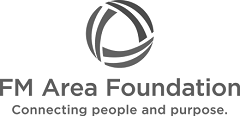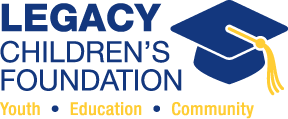Get Involved
Donate
Your consideration of a financial gift to transform the skills and future of discouraged, isolated youth is gratefully appreciated. All gifts make a difference.
Presence
Your gift of time develops value, meaning, leadership, and social capital for our youth. It enhances a deeper understanding between you and the youth of our community. We invite you to share purposeful time completing service projects with our youth. Teamwork always wins!
Employment
Our goal is to provide personalized learning resources, so every student has access to education, opportunities, and people to have productive futures.
Hear From Our Current Students
With Thanks To:












Donor Documents
The financial records of L.C.F. are audited annually by an independent third party. Interested persons are welcome to request a copy of the audit or other financial documents by contacting the Executive Director at legacychildrensfoundation@gmail.com
The Legacy Children's Foundation believes in accountability, conservative investment of donor funds, and a commitment to communicating how donor gifts are invested in advancing the mission of L.C.F. and the youth we serve. Donor gifts are confidential and treated with care and appreciation. The Donor Bill of Rights provides additional information to donors about their rights and the responsibilities of a charitable organization such as the Legacy Children's Foundation. Please do not hesitate to contact us with questions regarding your gift or a potential gift to support our mission and youth. We are grateful for your consideration.
Donor Bill of Rights
Philanthropy is based on voluntary action for the common good. A tradition of giving and sharing is primary to the quality of life. To assure that philanthropy merits the respect and trust of the general public and that donors and prospective donors can have full confidence in the nonprofit organizations and causes they are asked to support, we declare that all donors have these rights:
- To be informed of the organization's mission, how it intends to use donated resources, and its capacity to use donations effectively for their intended purposes.
- To be informed of the identity of those serving on the organization's governing board and to expect the board to exercise prudent judgment in its stewardship responsibilities.
- To have access to the organization's most recent financial statements.
- To be assured, their gifts will be used for the purposes for which they were given.
- To receive appropriate acknowledgment and recognition.
- To be assured that information about their donations is handled with respect and with confidentiality to the extent provided by law.
- To expect that all relationships with individuals representing organizations of interest to the donor will be professional in nature.
- To be informed whether those seeking donations are volunteers, employees of the organization, or hired solicitors.
- To have the opportunity for their names to be deleted from mailing lists that an organization may intend to share.
- Feel free to ask questions when donating and receive prompt, truthful, and forthright answers.
The Donor Bill of Rights was created by the Association of Fundraising Professionals (AFP), the Association for Healthcare Philanthropy (A.H.P.), the Council for Advancement and Support of Education (CASE), and the Giving Institute: Leading Consultants to Nonprofits.





